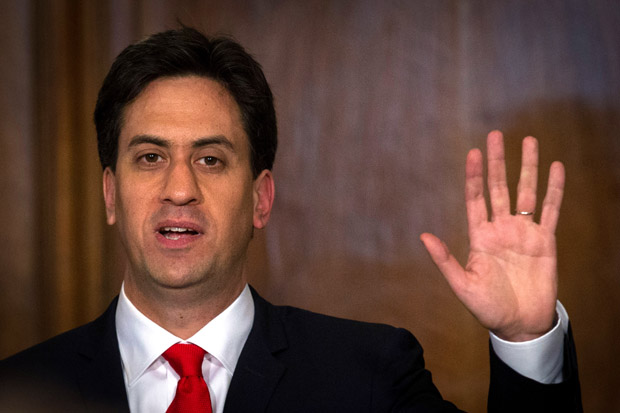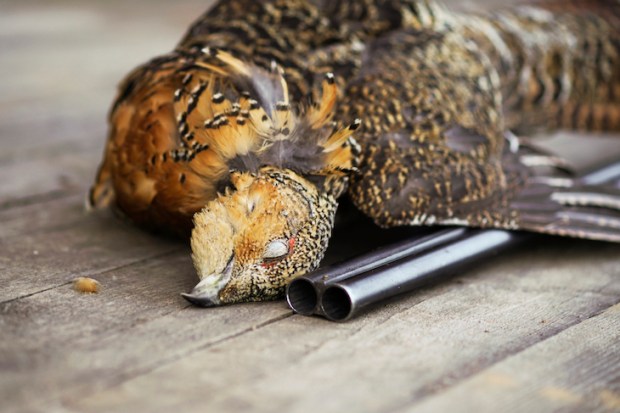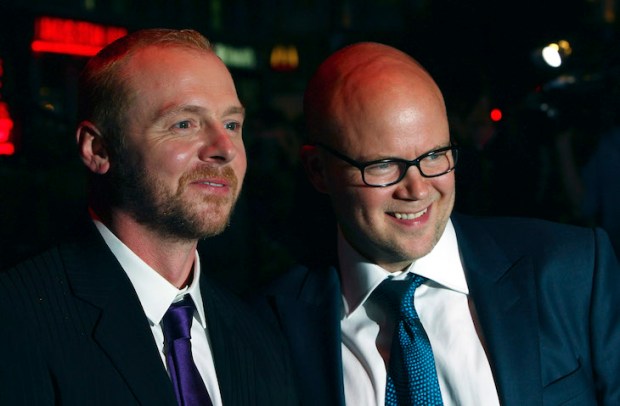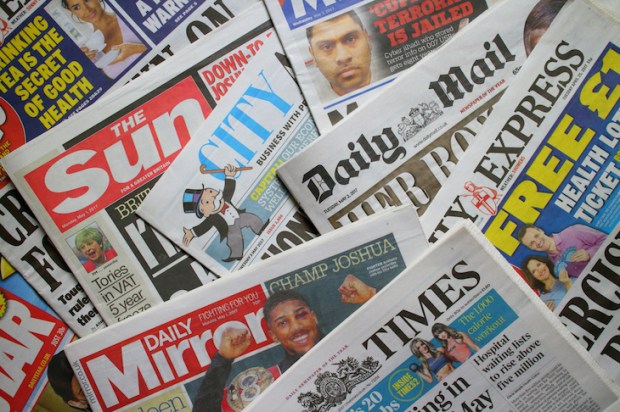In his Memoirs, Kingsley Amis includes a story about meeting Roald Dahl at a party in the 1970s. Dahl advises him to write a children’s book — ‘That’s where the money is’ — and brushes aside his objection that he doesn’t think it would be any good. ‘Never mind, the little bastards’d swallow it,’ he says. Then, a few minutes later, Dahl raises himself to his full height and, with the air of a man asserting his integrity in the face of an outrageous slur, says: ‘If you do decide to have a crack, let me give you one word of warning. Unless you put everything you’ve got into it, unless you write it from the heart, the kids’ll have no use for it. They’ll see you’re having them on… Just you bear that in mind as a word of friendly advice.’
I was reminded of this anecdote last Saturday while watching The Twits, an adaptation of Roald Dahl’s novel at the Royal Court. As a production, it was a peculiar combination of cynicism and sincerity — condescendingly didactic and painfully earnest at the same time.
Like every play I’ve ever seen at the Royal Court, The Twits is a thinly disguised solicitation to vote Labour. That’s quite a feat since the book is a ferociously snobbish indictment of England’s petit bourgeoisie. The malignancy of the two central characters, Mr and Mrs Twit, is inseparable from their lowly class origins. They are curtain-twitchers who live in a suburban semi and Dahl, who lived in a large country house in Great Missenden, clearly thought that all such people are venal and mean-spirited.
In the stage adaptation, Mr and Mrs Twit behave just as unpleasantly, but Dahl’s snobbery has been inverted and they have become members of the nobility. In this version, their mistreatment of animals — the main vice of the Twits — is just typical upper-class behaviour. Not only that, but the writer has invented a whole new cast of characters for these two villains to exploit — a group of poor, benighted travellers who take up residence on their land. Towards the end of the play, one of these gypsies, who not coincidentally is black, makes a speech in favour of equality and solidarity and, soon afterwards, a revolution occurs in which the animals and workers rise up and put the Twits to the sword. As the lights go down, a Welsh men’s choir give a stirring rendition of ‘The Red Flag’ and a flickering image of Ed Miliband is projected on to the curtain.
Okay, I made that last part up, but you get the general idea. Somehow, Dahl’s children’s book about a couple of lower-middle-class misanthropes has been turned into a Labour party pledge card. It’s cynical and condescending in that the writer and director clearly think the audience is dim-witted enough to be influenced by their cack-handed propaganda, but also sincere. They passionately believe that if more people vote Labour, the world will become a better place.
It will be interesting to see what effect last month’s election result will have on Labour’s fifth columnists who have infiltrated the arts and media establishments — institutions like the Royal Court. I had lunch with a senior Conservative party figure a week before polling day and he was concerned about the impact of the long march through Britain’s institutions. He thought the cultural Marxists might have succeeded in creating a climate of opinion in which far-left policies like price controls, a wealth tax, the seizure of private property by the state and so on, were now politically acceptable. ‘I genuinely don’t know what’s going to happen,’ he said, the anxiety visible in his eyes.
Turns out he needn’t have worried. The electorate took a long, hard look at Ed Miliband and his loony-left agenda and decided to throw him under a bus. If I was a ‘worker by brain’ who’d been toiling away in the BBC or the British Council for decades, doing my best to demonise the Conservative party and its supporters, I would have found the election result quite disillusioning. I would have drawn succour from the absence of a Tory majority since 1992 — ‘It’s working! I’m making a difference!’ — only to have my hopes dashed when David Dimbleby unveiled the exit poll at 10 p.m. on 7 May. I might now think about doing something else.
But of course it won’t make a jot of difference. The comrades will continue to peddle the same old snake oil and, please God, the great British public will continue to ignore them.
Got something to add? Join the discussion and comment below.
Get 10 issues for just $10
Subscribe to The Spectator Australia today for the next 10 magazine issues, plus full online access, for just $10.
Toby Young is associate editor of The Spectator.
You might disagree with half of it, but you’ll enjoy reading all of it. Try your first month for free, then just $2 a week for the remainder of your first year.















Comments
Don't miss out
Join the conversation with other Spectator Australia readers. Subscribe to leave a comment.
SUBSCRIBEAlready a subscriber? Log in